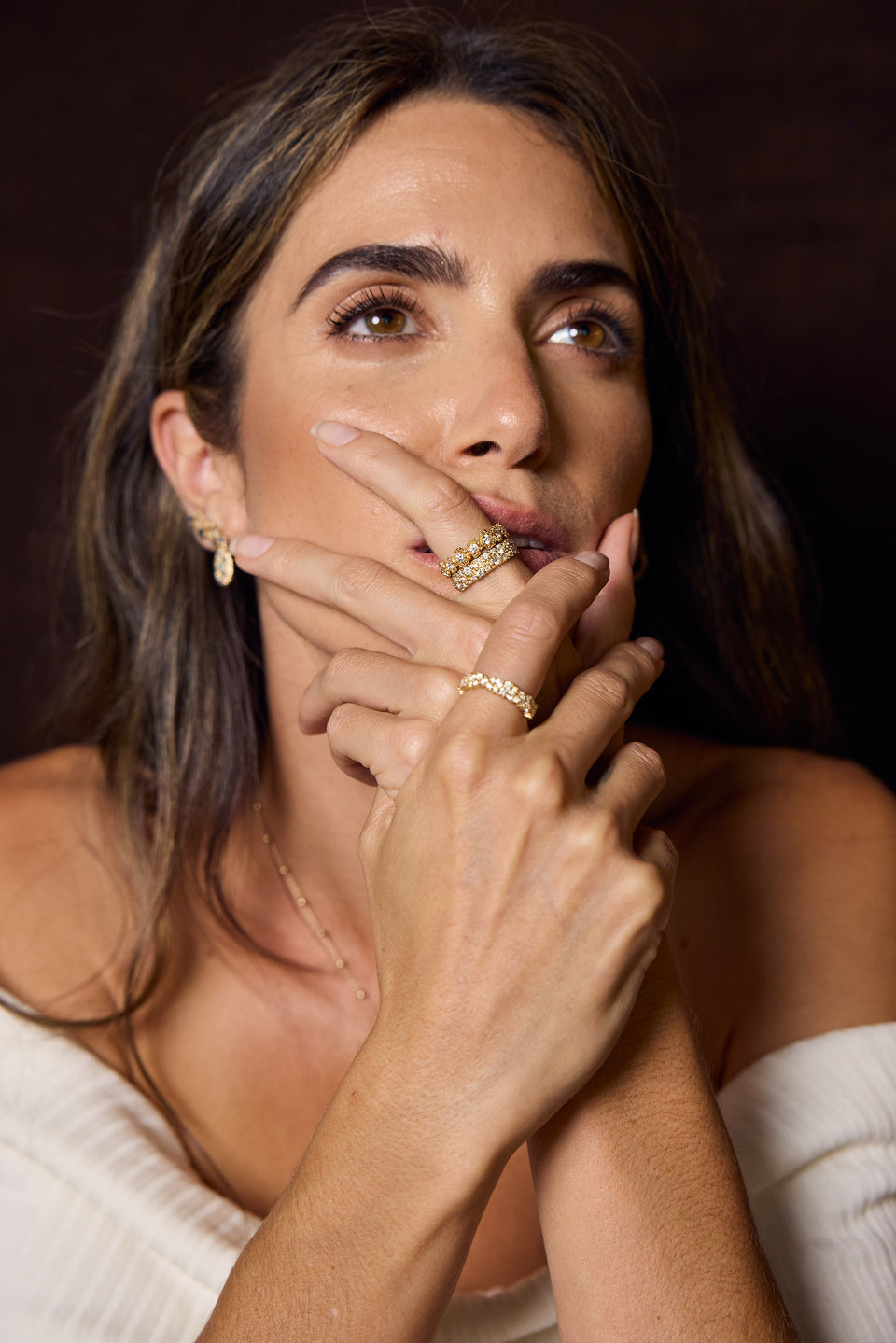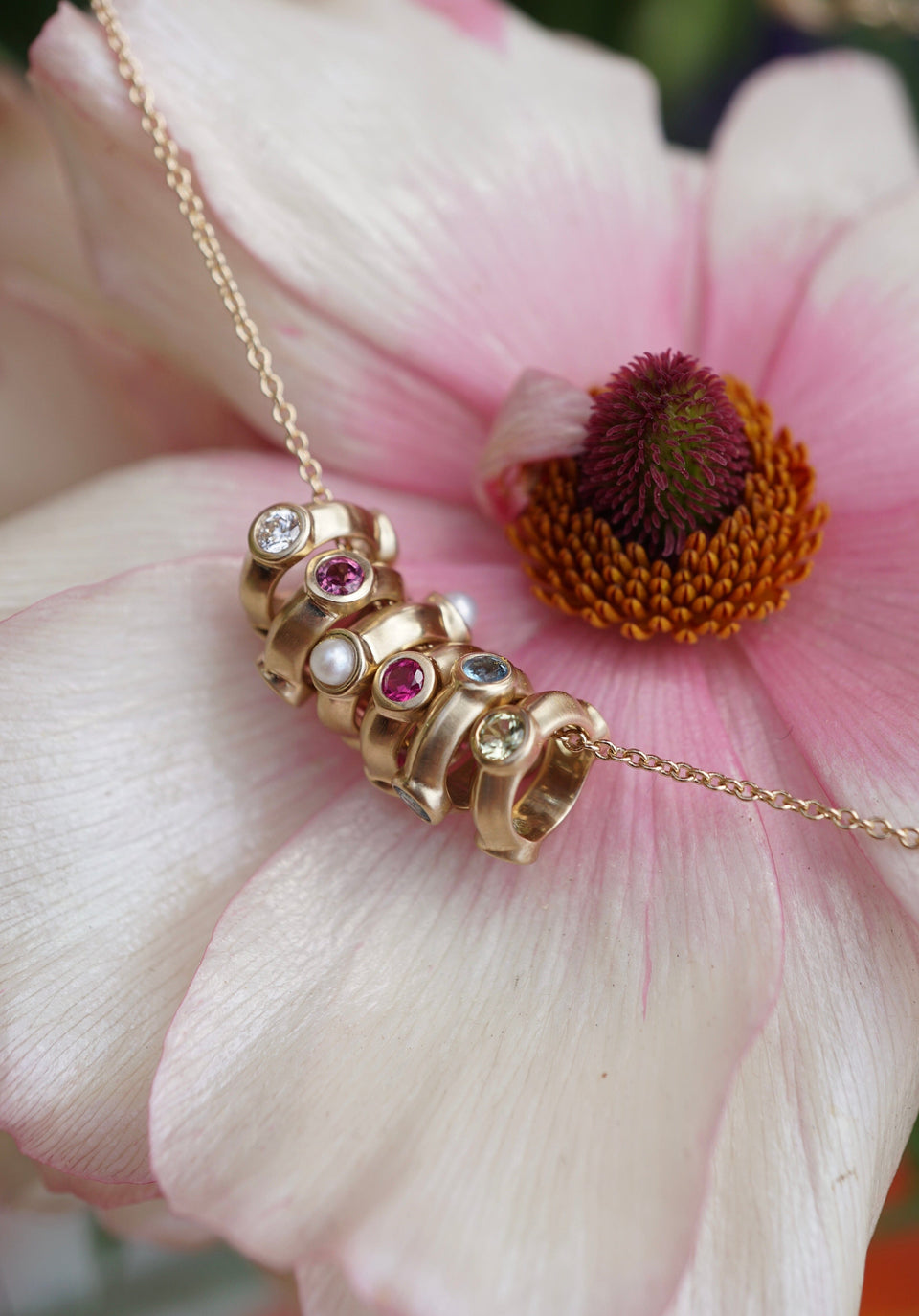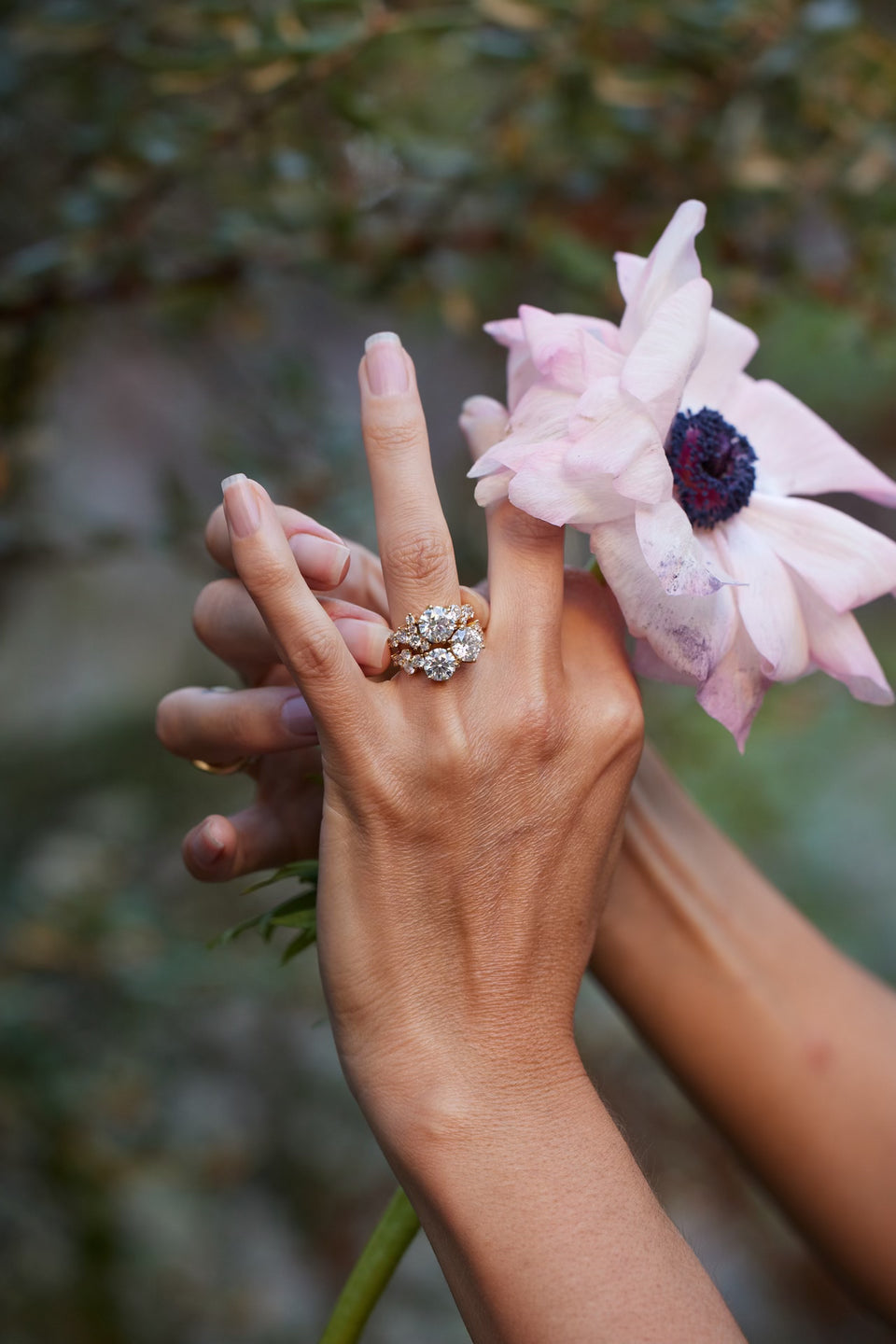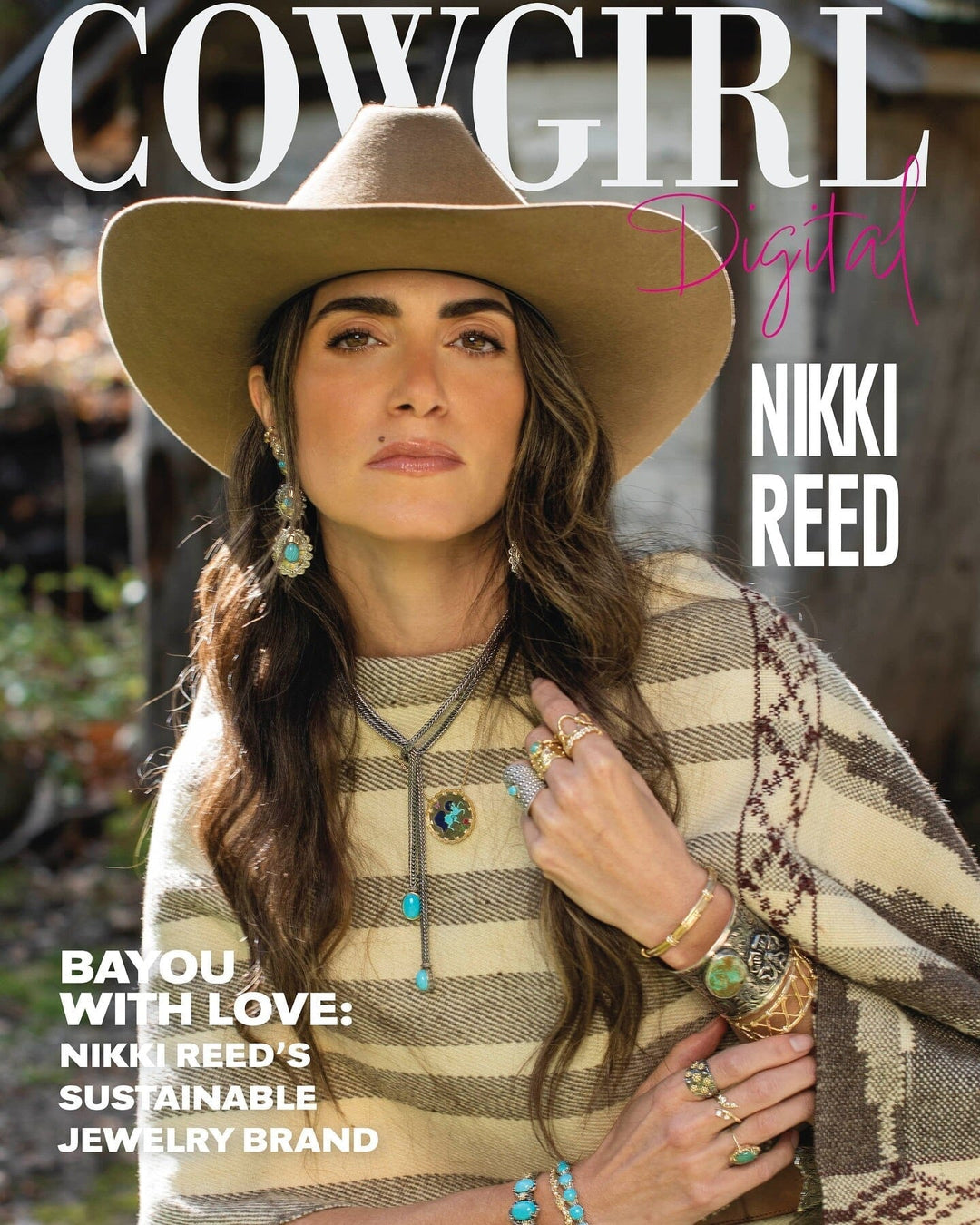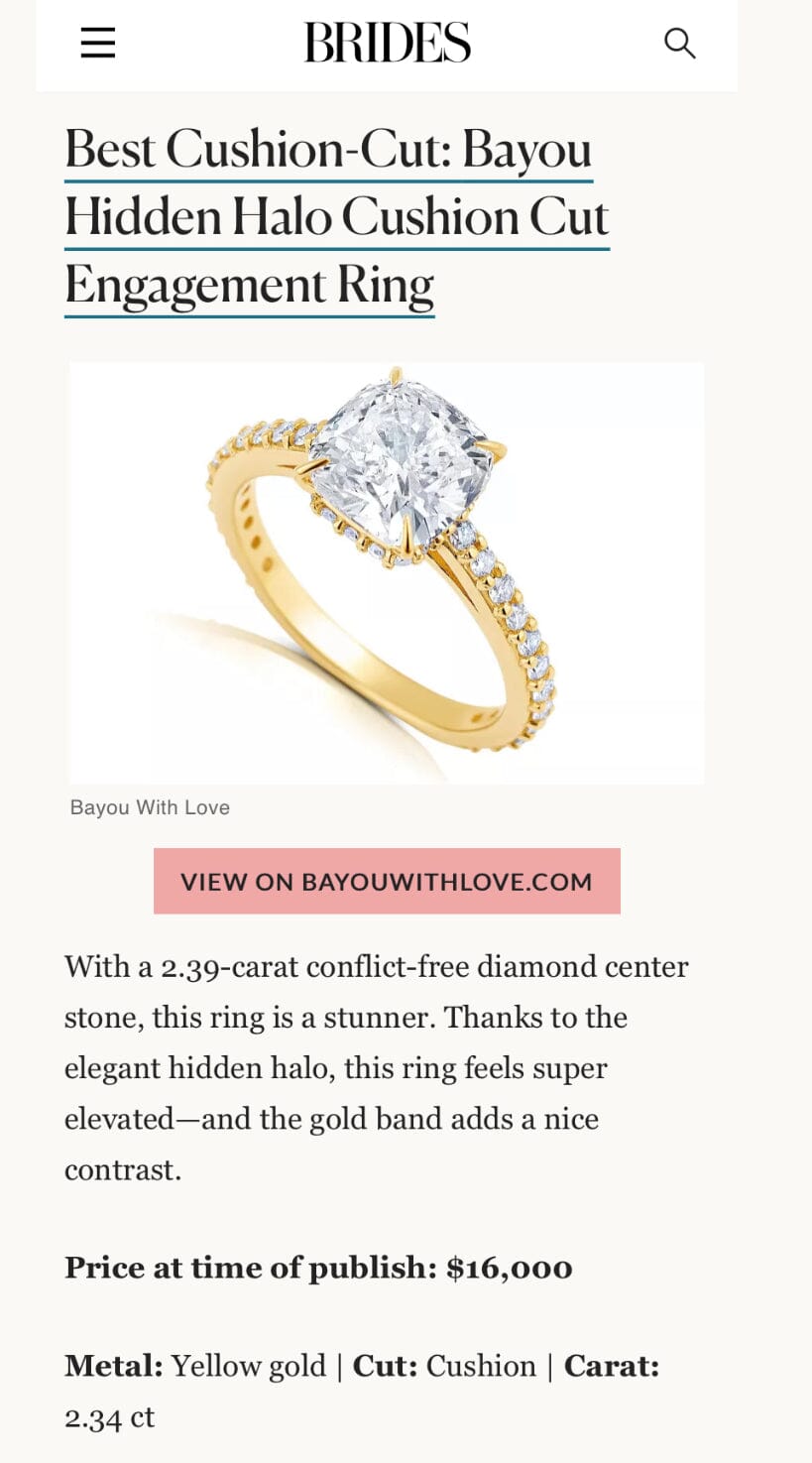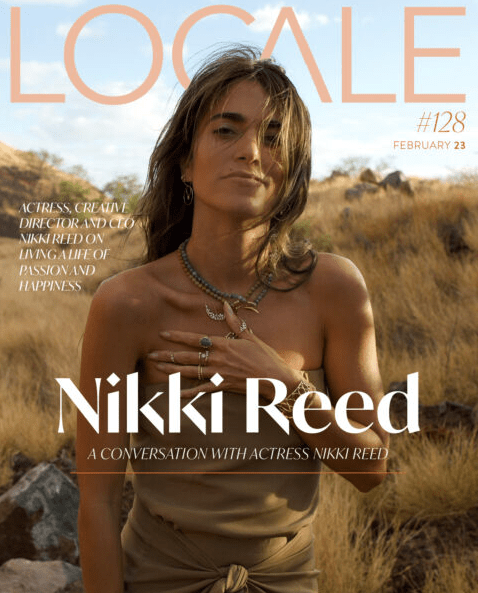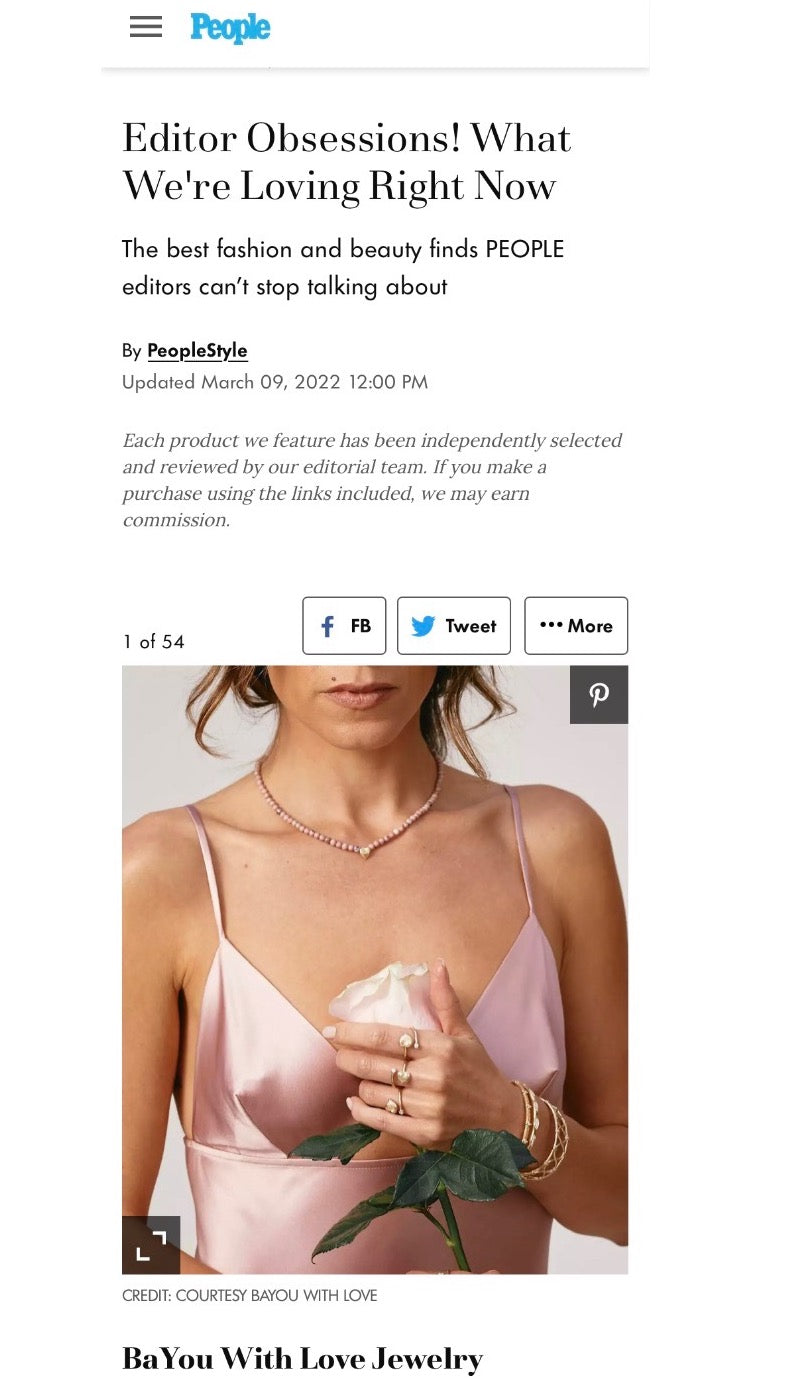BAYOU X NINA KARNIKOWSKI
How do you feel you’ve incorporated mindfulness into your life?
Having studied Buddhist philosophy for a few years, and being a big fan of the teachings of Thich Nhat Hanh, I do try to apply mindfulness to most things I do. From drinking my bowls of tea in the morning before dawn, to walking our beloved dog Milka, to crafting stories, to drinking a glass of organic wine with my husband. Just being with each activity – even the supposedly boring ones like brushing my teeth or washing the dishes – with my whole mind and my whole heart, makes life richer and more enjoyable. We spend so much time focused on virtual reality or on an imagined future these days, so it’s vitally important for our health and happiness to slow the warp speed of our lives down a little. And so, I try. Again and again, returning to my breath, and staying with the one thing that can bring us true happiness: the present moment.How has travel influenced your philosophy on waste?
I grew up in a low-waste household. My mum would hold a bucket beneath the shower while it heated up so she could use that otherwise wasted water on the plants, and we weren’t allowed to leave the dinner table until every last mouthful was eaten off our plates. I hated it at the time – I was embarrassed by the recycled ice-cream container that served as my lunch box and by my hand-me-down clothes. Now, though, I’m so thankful for all of it because I can really see wasteful behaviour for what it is. And you do see an awful lot of it when you’re travelling – from the plastic cups used on airlines, to plastic water bottles and excessive laundry in hotel rooms. I think the biggest thing travel has taught me about waste is how to appreciate the things we have, how to treasure them and introduce them into our lives with intention, so that we don’t overconsume or get into that cycle of working jobs we hate to buy things we don’t need. I remember watching these tiny kids in Ethiopia run naked by the side of the road next to our van, shouting after me and my husband, begging for our used water bottles. They would walk all day in the scorching sun to gather water for their families and so our bottles, which they couldn’t afford, were a huge help to them. It was absolutely heartbreaking to see, but reminded me of how privileged we are in the western world to have such abundance, and how important it is for us to never take anything we have for granted.
 You have had some incredible experiences meeting artists and makers from around the world for your upcoming book Make a Living Living (publishing early 2019), how have they inspired you? Do you feel they’ve introduced you to different ways of living?
You have had some incredible experiences meeting artists and makers from around the world for your upcoming book Make a Living Living (publishing early 2019), how have they inspired you? Do you feel they’ve introduced you to different ways of living?
I felt so privileged to be able meet and interview these creatives, from a Japanese tiny home builder living in the forest, to a tribal photographer travelling to the most remote parts of our planet. These people have all done what so many of us are too scared to do, pursuing creatively fulfilling careers and proving to the world that making a living and making a life don’t have to point in opposite directions. Most of the subjects in my book have made big financial sacrifices in order to make their dreams a reality. This gorgeous knitter from New Zealand, for example, said she didn’t own any of the things society tells us we’re ‘supposed’ to own, cars and property and all of that, but that none of that matters when you’re doing what you love. I was also so inspired by the people who had taught themselves to make the things in life they wanted, rather than buying them, like the woodfired potter who taught himself to renovate his Australian bush home with recycled wood and handmade ceramics. These people reminded me that the things that truly matter in life are creative fulfillment, family, community, and a deep sense of wonder for the world.
What do you think the world needs?
Less people who are walking around as if half asleep, moving from the office to the gym to the bar and back home again, not really knowing why they’re doing any of it and not understanding why they haven’t found contentment. A greater sense of purpose, and a greater sense of connection to the world at large, is something I think every one of us could benefit from.

Why do you think travel is so important for us as human beings?
Travel is one of the most potent tools for transformation we have. I’m yet to visit a place that hasn’t changed me in some small way, that hasn’t added another layer to who I am, which I think is essential to us as human beings. If we continue to travel, we continue to evolve and to know ourselves and our world better, to see where its biggest problems lie.
Of course, travelling as much as I do isn’t the best thing for one’s carbon footprint, but I do hope that the stories I’m telling my readership help to open their minds, which might even that out a little bit. I’m trying to travel less these days, taking fewer but longer trips. It is a work in progress.

Tell us about your journey in finding alternative ways to consume?
On the clothing side of things, I’ve always really loved vintage clothing, the stories that lie behind them and how the clothing we wear tells stories about the life we’ve lived, the people we’ve met, the places we’ve been. When I started travelling for a living six years ago, this informed the sorts of pieces I would invest in. Some of my favourite pieces gathered on the road include an embroidered jacket I purchased from a yao minority tribeswoman in rural China, and a bejewelled floor-length vintage Indian skirt I bought in Rajasthan when I was living in India five years ago. These sorts of pieces become treasures, ones I would never dream of throwing into landfill and that I plan to pass down to my children. If it’s not vintage, then I’m either buying good quality pieces made with natural, sustainable fabrics that will last a lifetime, that I think deeply about purchasing before I invest in them, or pieces that have been passed down to me from family and friends.
In terms of food, my husband is a biodynamic winemaker and we lived on his family vineyard for five years until a year ago, which taught me so much about eating in as self-sufficient a way as possible. We had chickens that we’d collect our eggs from each morning, big veggie gardens and a fruit orchard, we would have one of our happy, beloved cows slaughtered once a year and the family would share that meat, and then of course we had delicious biodynamic wine to drink. We knew where our food was coming from and exactly what was on our plates each day, and I continue to try to find out as much as possible about the food I’m eating. Thankfully, we now live in a beautiful town called Byron Bay where there are farmers markets every day, and my husband runs a natural wine bar there so we’re spoilt for choice with the best biodynamic and organic wines from all around the world. We really are what we eat, and drink.
How has living like this enriched your life?
It makes me feel like I’m a greater part of the whole. It has reduced stress in my life, since the more conscious I’ve become as a consumer, the less choice I’ve had and the less I buy, which has a calming effect. There’s less guilt involved in the purchasing process, too.

What advice would you give to people who want to start living a more conscious life but don’t know where to begin?
Come back to nature as much as possible. By that I mean choosing clothes made with natural materials (organic cotton, linen, silk and hemp), and food and beauty products that are as close to their natural state as possible. Buy local as much as possible, eat less meat, avoid plastic, and always choose businesses that are committed to sustainability.Buying natural and organic often isn’t the cheapest option, but try to remember that the cheapest price is rarely the fairest price, and opt for classic pieces that have a timeless aesthetic, something without a sartorial expiration date and that side-steps the trend cycle.
